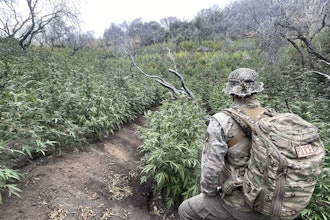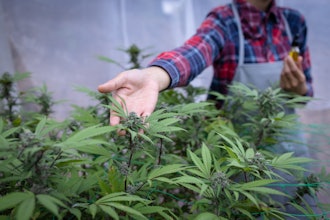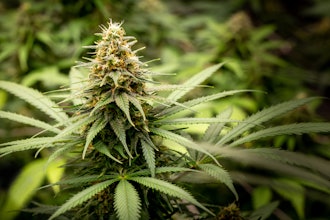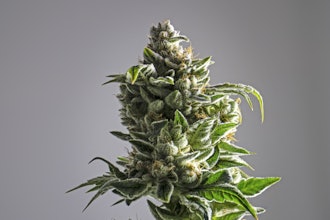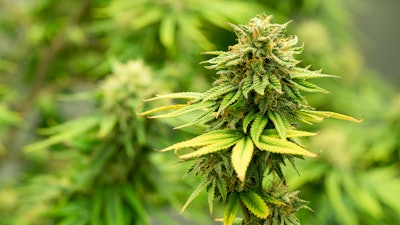
California Attorney General Rob Bonta, together with local and federal law enforcement partners, announced the eradication of 774,829 illegally cultivated cannabis plants and 106,141 pounds of processed cannabis, as well as 282 arrests in 36 different counties across California as part of Eradication and Prevention of Illicit Cannabis (EPIC) program. The total underground market price for these seizures is valued at approximately $353 million. EPIC is an interagency task force focused on combating the illegal cannabis market, cannabis enforcement work, and investigating and prosecuting civil and criminal cases with a focus on environmental, economic, and labor impacts from illegal cultivation.
Over the course of the 2024 season, EPIC teams operating in Northern, Central, and Southern California, conducted 665 operations, recovered 201 weapons, and removed infrastructure, including dams, water lines, and containers of toxic chemicals, such as carbofuran, methyl parathion, aluminum phosphate, zinc phosphide, and illegal fertilizers. Carbofuran, in particular, poses untold risks to public health. A lethal insecticide that is effectively banned in the United States, carbofuran remains on plants after application and seeps into soil and nearby water sources.
In 2024, EPIC operations were conducted in the following 36 counties:
- Alameda: 1 site, 751 plants eradicated
- Butte: 5 sites, 4,397 plants eradicated
- Colusa: 3 sites, 10 plants eradicated
- Contra Costa: 2 sites, 5,010 plants eradicated
- El Dorado: 8 sites, 2,174 plants eradicated
- Fresno: 31 sites, 52,796 plants eradicated
- Glenn: 1 site, 747 plants eradicated
- Kern: 60 sites, 89,819 plants eradicated
- Kings: 1 site, 539 plants eradicated
- Lake: 48 sites, 42,776 plants eradicated
- Lassen: 1 site, 7,359 plants eradicated
- Los Angeles: 3 sites, 3,684 plants eradicated
- Madera: 3 sites, 1,230 plants eradicated
- Mariposa: 2 sites, 1,368 plants eradicated
- Mendocino: 116 sites, 133,702 plants eradicated
- Nevada: 33 sites, 28,428 plants eradicated
- Riverside: 79 sites, 136,601 plants eradicated
- Sacramento: 13 sites, 46,042 plants eradicated
- San Bernardino: 23 sites, 27,845 plants eradicated
- San Diego: 7 sites, 9,301 plants eradicated
- Santa Barbara: 1 site, 362 plants eradicated
- Santa Clara: 2 sites, 1,012 plants eradicated
- Shasta: 67 sites, 51,289 plants eradicated
- Siskiyou: 98 sites, 67,943 plants eradicated
- Stanislaus: 6 sites, 5,103 plants eradicated
- Trinity: 38 sites, 32,381 plants eradicated
- Tulare: 7 sites, 5,468 plants eradicated
- Tuolumne: 2 sites, 7,637 plants eradicated
- Ventura: 3 sites, 7,891 plants eradicated
- Yuba: 2 sites, 1,164 plants eradicated
- Monterey: reconnaissance only
- Napa: reconnaissance only
- San Benito: reconnaissance only
- San Luis Obispo: reconnaissance only
- Santa Cruz: reconnaissance only
- Solano: reconnaissance only
The EPIC program focuses on the investigation and prosecution of civil and criminal cases relating to illicit cannabis cultivation with a focus on environmental and economic harms and labor exploitation. EPIC is a multi-agency collaboration led by DOJ in partnership with the U.S. Department of Agriculture’s U.S. Forest Service; the U.S. Department of the Interior's Bureau of Land Management and National Park Service; the California Department of Fish and Wildlife; the U.S. Department of Justice’s Drug Enforcement Administration; the California National Guard, Counter Drug Task Force; the Central Valley High Intensity Drug Trafficking Areas program; California State Parks; California Environmental Protection Agency; and other local law enforcement departments.
EPIC marks an evolution in DOJ's cannabis enforcement work, reflecting the issues and concerns arising from operations each summer. EPIC works in close coordination with DOJ’s Cannabis Control Section, Special Prosecutions Section, and Tax Recovery and Underground Economy (TRUE) Task Force to build investigations and prosecute civil and criminal cases.













